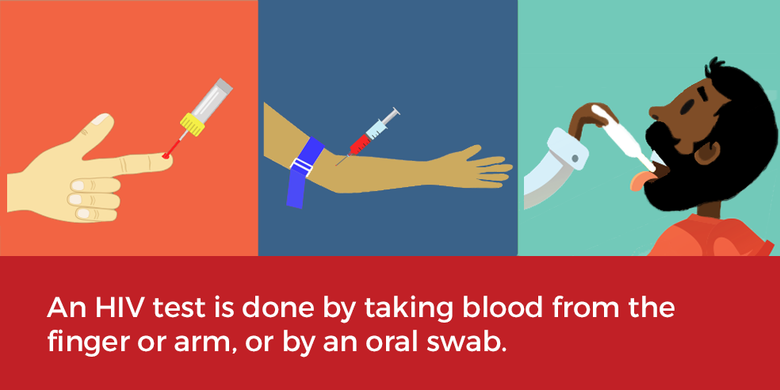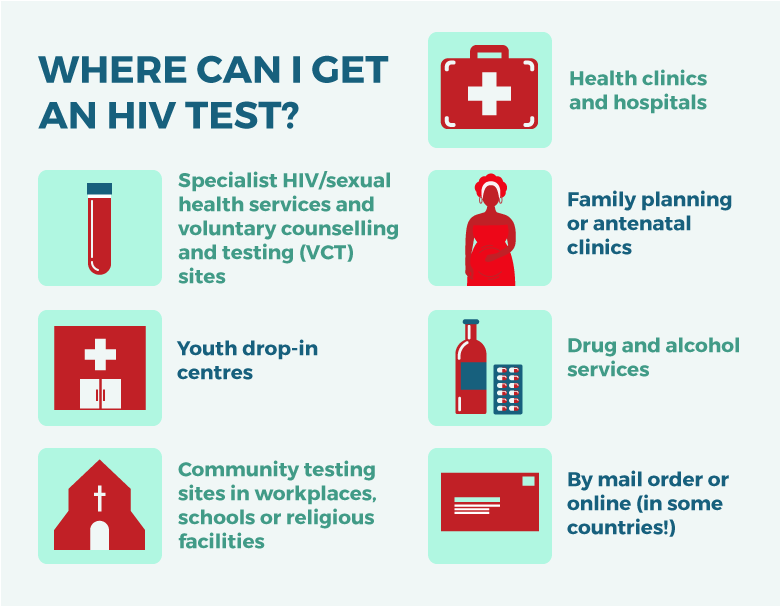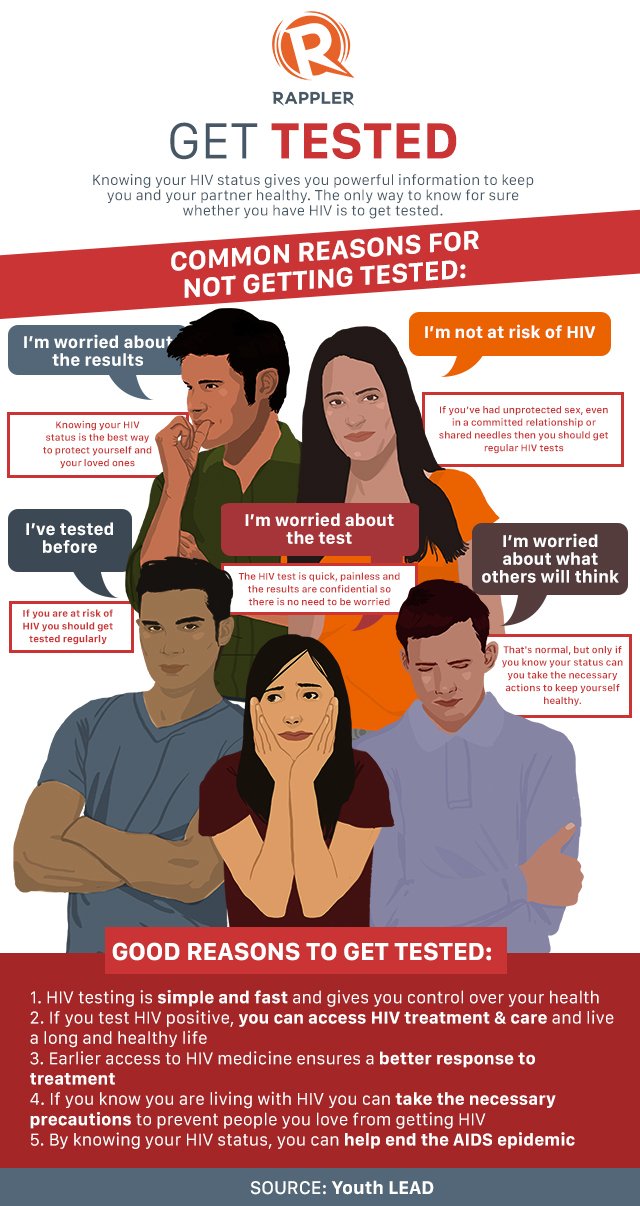Sharing Injection Drug Equipment
most efficiently . This is because used needles and syringes can still contain blood, which can carry the virus.
HIV is not the only virus that can be transmitted by sharing drug injection equipment. The viruses that cause hepatitis B and hepatitis C can be
- having other types of sexually transmitted infections
Reducing Hiv Transmission Risk During Pregnancy
For HIV-positive women, ways to reduce the risk of transmission include:
- Taking antiretroviral medications before conception to reduce your viral load . The lower the viral load, the lower the risk of transmission to your unborn baby.
- Start antiretroviral HIV treatment as soon as you are diagnosed with HIV .
Being on treatment and having a low, or undetectable, viral load improves your immune system and health throughout pregnancy.
HIV-positive pregnancy today, with specialised care, is the same as HIV-negative pregnancy. Pregnancy does not make HIV progress any faster.
What Should People Living With Hiv Do If They Develop Drug Resistance For The First Time
If you develop drug resistance, Wohl advised taking the time to figure out if something went wrong, and to try to keep it from happening again.
Was adherence difficult? Did drug supplies run out? Addressing the underlying cause while moving on to second-line treatment is important to minimize the risk of failure of the new regimen, said Young.
Get help from your clinic and your support network, if possible. If missing doses was the issue, it can be difficult to change the things that made it hard to take meds every day. But you have to try, said Wohl.
The good news is that todays second-line antiretroviral treatments can be both very effective in suppressing resistant virus, and still be very well tolerated. Irrespective of what type of first-line treatment was used, second-line use of integrase inhibitors or boosted protease inhibitors can be successful, Young added.
You May Like: Is Hiv In Semen
How Do You Prevent Hiv Drug Resistance
People living with HIV can prevent drug resistance by remaining on treatment and adhering to their medications. With current HIV regimens, adherence commonly means taking medications once a day. Proper adherence can also include taking medications at a particular time of day, as well as with or without food, or on an empty stomach.
We need to ensure that people who start treatment can stay on effective treatment, to prevent the emergence of HIV drug resistance, said Gottfried Hirnschall, MD, MPH, director of the WHOs HIV Department and Global Hepatitis Program.
The best thing a person living with HIV can do to prevent drug resistance is to take their meds every day, Wohl reiterated to BETA.
The medications we have now to control HIV work incredibly well and are usually once a day. Plus, almost everyone tolerates them, Wohl said.
Hiv And Planning A Family

, but for a woman who is HIV-positive, or who has a male partner with HIV, planning a family requires extra consideration.
If you are in this situation, seek professional advice and find out as much as you can before you become pregnant. It may help to talk the issues through with:
- The doctor who is treating you.
- Your HIV specialist, obstetrician or family planning specialist.
- The Chronic Viral Illness Clinic at Melbournes Royal Womens Hospital . CVI clinic staff are experienced and knowledgeable about HIV in pregnancy and can provide expert advice and assisted reproductive technology options for serodiscordant couples .
- A counsellor who specialises in this area.
Also Check: Hiv Hair Loss Symptom
Semen Vaginal Fluids And Anal Mucus
If an HIV positive person has sex without a condom, and they do not have an undetectable viral load, HIV can get into the other persons blood because it lives in the semen, vaginal fluid and anal mucus. There does need to be a tear or graze in the other person for the HIV to enter into their body. A condom stops any fluid being passed to the other person, and it also stops unwanted pregnancy and getting other sexually transmitted infections.
Can I Get Hiv From Sharing Needles
Yes. Sharing needles or syringes and other injection drug equipment is very risky. Sharing needles is the second most common way that HIV is spread to women in the United States . Any woman who shares needles with someone is at risk for HIV infection, because the needles may have someone else’s blood in them.
Learn more about HIV risk and sharing needles.
Don’t Miss: Average Hiv Life Expectancy
Takeaways For Avoiding Drug Resistance
How Does Hiv Work
The full scientific name for HIV is human immunodeficiency virus. Its an infection that attacks the immune system, and it operates like this:
- The virus itself is shaped like a bowling ball covered in tiny spikes
- After HIV enters the bloodstream, it uses those tiny spikes to latch on to white blood cells , the bodys first line of defense against infections
- As soon as HIV gets inside white blood cells, it uses the cells own machinery to create copies of itself, creating effective camouflage that tricks the immune system into leaving it alone
- As HIV creates even more copies of itself, it hijacks a persons immune system
- A weakened immune system means that people living with untreated HIV may start to get all sorts of infections that would never normally make them sickEventually, without proper treatment, HIV leads to AIDS and becomes life-threatening
Todays anti-HIV medicines have been designed to address each stage of the infection process.
Some of these medications, which are also called antiretrovirals, stop HIVs spikes from latching on to CD4 cells. Others use different methods to stop HIV from replicating.
These drugs cant completely eradicate the virus from a persons body, but they do successfully stifle its ability to make copies of itself.
You May Like: What Does Antiretroviral Therapy Do Brainly
How Could You Get Hiv From Contact With Blood
The risk of HIV transmission through blood comes when the person has a detectable viral load and their blood enters another persons body or comes into contact with a mucous membrane. These are parts of the body with wet, absorbent skin such as the:
- eyes
- inside of the anus
- mouth.
Theres also a risk if blood from a person who has a detectable viral load comes into contact with a cut or broken skin, giving HIV a way through the skin and into someones bloodstream. If blood gets onto skin that isnt broken, there is no risk.
In a medical setting, its possible for HIV to be transmitted by someone accidentally cutting themselves with a blade or needle they have used to treat a person living with HIV.
This is called a needlestick injury. The risk of being infected in this way is very low. However, if someone thinks they have been exposed to HIV through a needlestick injury, post-exposure prophylaxis may be an option.
Ways The Virus Can Spread And Ways It Cannot
HIV is a virus that can be transmitted from someone with HIV to someone without through body fluids like semen, blood, vaginal secretions, and breast milk. HIV is most commonly passed during unprotected sex, primarily anal and vaginal sex, but is also effectively transmitted through . HIV can also be passed from mother to child via the placenta during pregnancy or during childbirth, due to exposure to blood or vaginal fluid, or while breastfeeding.
Theresa Chiechi / Verywell
Some modes of transmission are more efficient than others. In order for HIV to be transmitted, the virus needs to come into contact with porous mucous membranes , pass through breaks and tears in tissues , or enter the bloodstream directly .
Moreover, there is needs to be ample quantities of the virus to breach the bodys frontline immune defenses. This is why HIV cannot be passed through saliva, the environment of which is hostile to the virus, or when the virus is fully suppressed in an HIV-positive person on antiretroviral therapy.
Read Also: Does Cookie Johnson Have Hiv
Effective Treatments Can Reduce Hiv Transmission
When someone with HIV is on antiretroviral treatment and consistently has very low levels of virus they are not infectious and cannot sexually transmit the virus.
This may be true for sexual transmission during pregnancy, but researchers are still gathering more evidence before they can be confident it is true for transmission during pregnancy, labour and delivery, and during breastfeeding.
New preventative medications Pre-exposure prophylaxis and post-exposure prophylaxis can be taken by HIV-negative people who are at risk of getting HIV.
As long as the HIV-positive partner maintains a stable undetectable viral load and these medications are taken strictly as prescribed, HIV transmission to a negative partner is not possible.
Speak to your treating doctor if you would like to explore these newer prevention drugs.
Hiv And Getting Pregnant

If you are HIV-positive and become pregnant, or would like to have a baby, it is strongly recommended that you talk to specialists.
If you live in Victoria, The Victorian HIV Service at the Alfred Hospital and the Chronic Viral Illness Clinic at the Royal Womens Hospital can provide you with more information.
At the Chronic Viral Illness Clinic at the Royal Womens Hospital you can discuss your options with doctors who specialise in HIV and reproductive health.
This clinic specialises in helping serodiscordant couples to conceive safely.
Timing of sex to coincide with ovulation can be discussed with a healthcare provider to increase your chances of getting pregnant while reducing the risk of passing on the virus.
You May Like: Does Nba Youngboy Have Herpes
How Hiv Is Transmitted
HIV is not passed on easily from one person to another. The virus does not spread through the air like cold and flu viruses.
HIV lives in the blood and in some body fluids. To get HIV, 1 of these fluids from someone with HIV has to get into your blood.
The body fluids that contain enough HIV to infect someone are:
- semen
- vaginal fluids, including menstrual blood
- breast milk
- contact with animals or insects like mosquitoes
When Your Viral Load Is Undetectable
Eventually, you want to have an undetectable viral load — one so low that a lab test canât find it. When you have an undetectable viral load, you canât spread the virus to your sexual partner.
Even when you reach that point, you must remember that the virus is still in your body. To keep it at bay, take your medicine every day, just as your doctor prescribes. If you skip doses or stop treatment, your viral load can go up quickly. The chance that you can transmit the virus to your partners also goes way up.
Tell your doctor if you have trouble sticking to your treatment. Talk to your partners, too. Discuss other kinds of protection, like condoms, safer sex, or pre-exposure prophylaxis . This daily pill can lower the chance of infection in people who donât have HIV by up to 99%.
You May Like: Is Hair Loss A Symptom Of Hiv
Testing Positive On Hiv Antibody Tests
Since the early days of the HIV epidemic, we have used antibody tests to test for HIV. Antibody tests are the most affordable and accessible HIV tests. They are the most common types of HIV tests at testing sites around the world because they provide rapid, on-the-spot results.
Antibody tests do not detect HIV. Instead, they detect antibodies that the immune system produces in response to HIV infection.
Want to know more about different types of HIV tests, how they work and how early they detect HIV? Check out thiseasy-to-read guide from Avert orread this Q& A by the CDC.
WHAT ARE ANTIBODIES?
Our immune systems develop antibodies in response to all kinds of pathogens. Anytime you get sick or get any kind of infection, your body builds up a defense system and creates antibodies to try and fight that specific infection off. If these antibodies are successful, some infections will go away but the antibodies never do. They will remain in your body, helping to protect you from getting the same infection in the future.
In this way, antibodies allow our bodies to remember a specific infectious agentlike a particular strain of the fluand then respond to it more quickly if exposed to it again in the future. Once we develop antibodies to a virus we may have those antibodies for life or for many years.
HIV ANTIBODIES
HIV ANTIBODIES WHEN YOURE UNDETECTABLE
Get Tested For Hiv As Soon As Possible To Know Your Status
- If you have HIV, the sooner you start treatment the betterfor your health and your babys health and to prevent transmitting HIV to your partner.
- If you dont have HIV, but you or your partner engage in behaviors that put you at risk for HIV, get tested again in your third trimester.
- You should also encourage your partner to get tested for HIV.
Don’t Miss: Atlanta Hiv Rate 2017
Blood Transfusions And Organ Donation
The risk of contracting HIV from a blood transfusion, other blood products, or organ donation is now extremely rare in the United States. All donated blood or blood products in the United States are for several types of bloodborne pathogens, including HIV.
Organ donations are also screened for HIV. Although very rare, its possible for HIV transmission to occur following an organ transplant.
However, testing of organ recipients after surgery can quickly detect transmission so that antiretroviral medications can be started promptly.
Managing Illness As A Parent
Although medical advances now allow people with HIV to live full, healthy lives, you may have times where you or your partner is unwell or needs medical care.
As with any longer-term illness, this can impact on your ability to earn an income, manage a household or raise children.
Living with chronic illness can be a challenge and sometimes families need extra support. Trying to sort things out on your own can make life seem overwhelming. Dont be afraid to ask for help from expert organisations that support people with HIV.
You May Like: Does Aids Make Your Hair Fall Out
Why Might People Living With Hiv Get Tested For Hiv
Because we connect with every single person who tests positive at one of our locations, we always ask why people get tested for HIV if theyve already been diagnosed in the past.
It happens for many reasons: People may test with a partner they havent yet disclosed to, they may have mental health concerns that come into play, or they need a letter of diagnosis to access services . Sometimes its because they are confused about the kind of information an HIV test will provide.
Now that weknow undetectable equals untransmittable , some people may have the misconception thatif youre undetectable, you will no longer test positive for HIV. They may think that if they test HIV-negative on an HIV test, theyll be able to show this to their sex partners as a way to prove that theyre undetectable and untransmittable. Or, they may think it will be easier to tell partners theyre HIV-negative rather than undetectable and uninfectious.
If you are living with HIV and have an undetectable viral load, you will still test positive for HIV. But, if you are living with HIV, have been taking HIV medications every day as directed, have a durably suppressed viral load and have been undetectable for at least six months, you will not transmit HIV to sex partners. You are not infectious. Thats the meaning of U=U.
Heres why you will still test positive for HIV even if you are undetectable.
Telling Health Professionals About Your Hiv Status

It is important to tell your doctor, obstetrician or midwife about your HIV status as early as you can .
Telling your health team, helps to talk through any concerns you may have and ensure you receive treatment before that suits your needs, and is safe throughout pregnancy and after your baby is born.
Also, if your medical team knows about your HIV status, they can take steps to minimise the risk of accidental transmission during any medical procedures.
Also Check: Does Cookie Johnson Have Aids